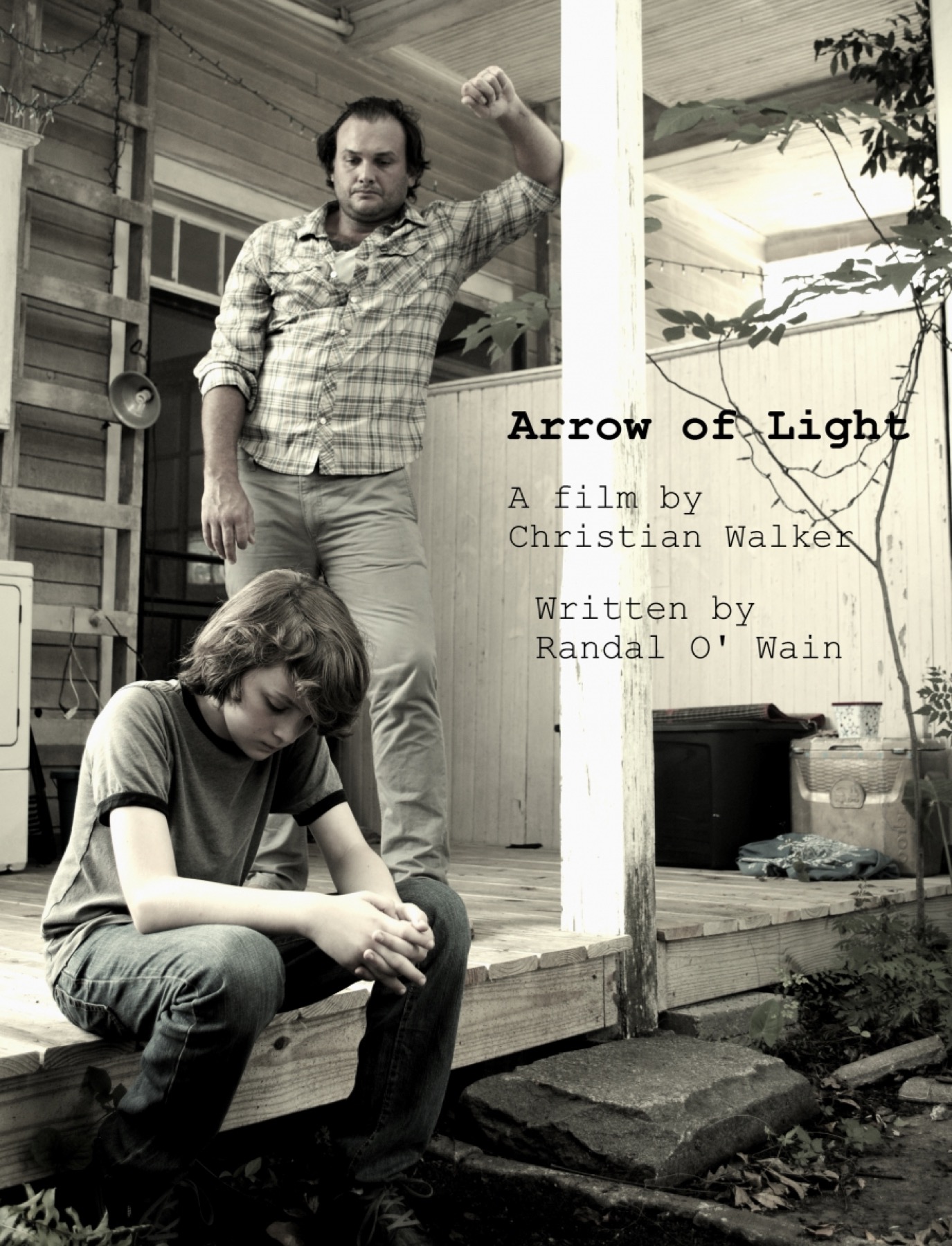
Christian Walker is currently raising funds to support “Arrow of Light” on IndieGogo
RECASTING ARROW OF LIGHT
By Caitlin Love
In December 2013, the Oxford American published an essay on our website by Randal O’Wain, a writer from Memphis. I was an intern when I discovered the story in our unsolicited slush pile, pulled in by the very first lines:
The evening Jimmy died my father was late picking me up from a Webelos meeting. I sat under a Japanese maple and practiced the square knot, the last knot I needed to master before receiving my Arrow of Light badge. Then I could enter Boy Scouts at ten, instead of eleven. Useful for survival, the square knot works as a binding knot. Good for clamping a wound but not the best for carrying things or securing them.
In “Arrow of Light,” O’Wain remembers the time his father took him to the site of a family friend’s suicide. When they arrive, the stain of the man, Jimmy, is fresh in the truck where he just put a gun to his head, and Randal’s father instructs him to stay in the car. Randal doesn’t stay in the car, but he doesn’t approach Jimmy’s truck, either. Rather, he waits in the yard while his father faces death:
[My father] paused only briefly before he reared back and kicked the side of Jimmy’s truck—”Stupid mother fucker!” he yelled. He charged the truck and kicked the door. His lips peeled back and his teeth grit tight as he kicked the door again, and twice more after the latch took.
“Arrow of Light” is told entirely through the lens of childhood, incorporating the kind of innocent detachment that comes with being young—the ten-year-old O’Wain doesn’t understand that Jimmy is dead, or why his father is raging. He thinks, later, that “Jimmy got robbed.” As a character, Randal does things young boys do: he argues with his older brother, watches Poison and Skid Row music videos after his parents have fallen asleep, and practices Boy Scouts knots (“I found a low-hanging branch and practiced the square knot on the limb as if it were a fellow scout’s bleeding arm”). He slowly understands the realities circling around him.
This Fall, the New Orleans–based filmmaker Christian Walker is raising funds to make a short film based on “Arrow of Light,” which he “saw play out perfectly as a film in my head” when he read it nearly two years ago. Walker is also a Memphis native and knew Randal when they were teenagers. They both played in bands and knew the same people. Walker remembers the house where Ran grew up, which he told me helped him imagine how he could portray O’Wain’s family. The film is still in its pre-production phase, but Walker has a stellar team lined up to act in and produce it. Their team is in the final days of an IndieGogo campaign. On the page, Christian says, “If I could show you my friend Randal’s story, as it plays in my head, I know you will be moved by it.”
A few weeks ago, Christian and I spoke briefly about the film and his take on “Arrow of Light.”
You mentioned that “Arrow of Light” seems like a traditional Southern Gothic story. Why do you feel that way?
When Randal talks about his father and his father’s best friend Jimmy, he writes about “car grease and saw dust smells.” Theirs was a working class family. Randal grew up in a big ramshackle house in the middle of Memphis that his father was always fixing up. It’s almost like this story could take place anywhere in America, but to me there are more details that seem specifically Southern.
What atmosphere do you imagine crafting for the film?
I’m going to try to put in little details as I read them from the story, but as far as things like trying to get actors who look like him and his family, I’m not going to go that far. At some point there’s going to be some creative license. But I am going to try as best I can to incorporate little details that he put in that story, adding some from another story of his that I read called “The Junk Trade,” which takes place after “Arrow of Light.” The tone of the film is going to be a little dark. The way I want to do it is, everything is seen through the eyes of a ten year old. The whole film will be from his perspective.
You seem to really admire the story and admire Ran for writing it.
I do. Ran and I came from the same place, and “Arrow of Light” comes from that same universe. I also like to support my friends, and I really like the idea of creativity as an ensemble process. I felt that way when I played in bands for a long time. It wasn’t just me and it wasn’t about my ego; it was about us and what me and my friends could create together. I feel like I can really get behind something like this; here’s this story written by a guy I really love and respect. And I can put my spin on his vision. In the end, the film will be an ensemble creation between him and me and the actors and the composers and the editors and everyone.


